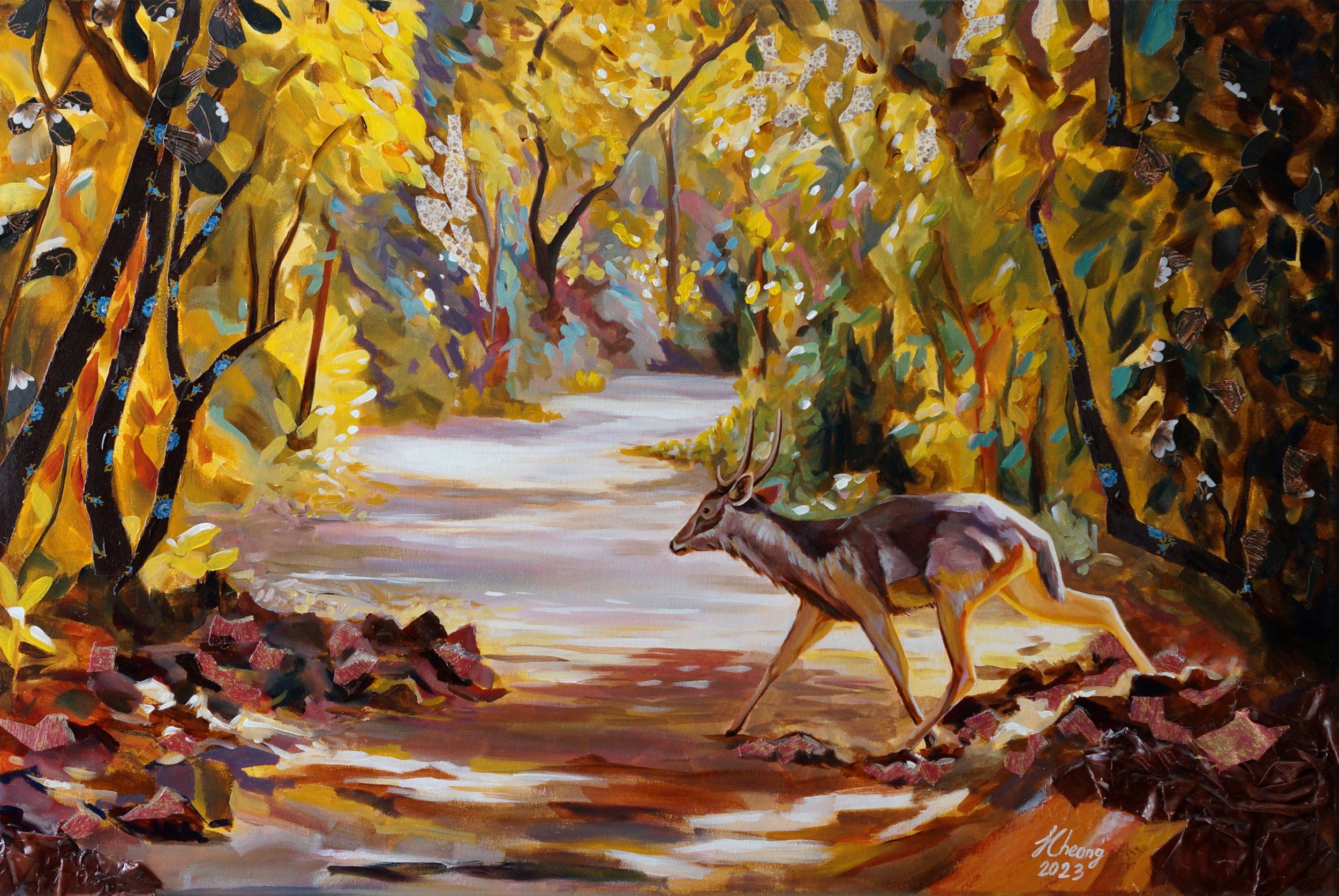Editor’s Preface
Sambar deer © Jillian Cheong (Singapore)
Even as a mother protects with her life
Her child, her only child,
So with a boundless heart
Should one cherish all living beings;
Radiating kindness over the entire world:
Spreading upwards to the skies,
And downwards to the depths;
Outwards and unbounded,
Freed from hatred and ill-will.
—Excerpt from the Karaniya Metta Sutta
Translated from the Pali by the Amaravati Sangha, 2004
Mae Boua Ngeun © Patrick Rouxel
This December, I had the privilege of visiting the Elephant Conservation Centre in Xayaboury, Laos, where I walked with rescued elephants through the forest, observed them eating, bathing, socialising, receiving veterinary care, and just being themselves in a relaxed environment where they could recuperate and recover from their hard lives. Many of them have sad stories where they suffered from abuse, overwork and/ or neglect in the logging industry or in tourism camps. As an outsider to Laos, it is tempting to jump to conclusions, form judgements and point fingers at guilty parties: the logging industry, the mahouts, the tourists, the safari camps, the governments. During my stay at the ECC, I learnt about the complex web of relations between elephants, people/ community, policies and the natural environment, reminding me of the notion of interbeing as expressed in the Karaniya Metta Sutta. I also learnt more about the aims of the ECC, one of which is to breed suitable Asian Elephants in the centre, with the intention of one day releasing them back into the wild. To date, they have released 5 elephants in the Nam Phouy National Protected Area, a ground-breaking contribution to the rewilding of the Asian Elephant in Laos.
You can now do your part by reading about Mae Boua Ngeun here, an 8-year-old elephant who is a vital link to the ECC’s conservation plans. Independent filmmaker and conservationist Patrick Rouxel, on behalf of the ECC, is raising funds to buy Mae Buoa Ngeun from her mahout at the market rate of USD 80,000 so that she can spend the rest of her young life in the ECC with the rest of her adopted family, have babies of her own, and one day be released back into the wild. If Mae Boua Ngeun’s story speaks to you, please DONATE HERE to support Boua’s freedom and the conservation of the Asian Elephant.
As an environmentally engaged eco journal, The Tiger Moth Review is committed to allying ourselves with like-minded conservation projects that speak to us. Having met the lively and sociable Mae Boua Ngeun ourselves, it is our wholehearted wish that enough funds will be raised to save Boua.
It is meaningful to read submissions, edit ecopoems and curate another issue for readers. It is essential to write ecopoems about interspecies kinships and entanglements, deforestation, climate change, habitat loss and conservation. It is also necessary to couple creative writing with embodied presence (which I shared last November at a Singapore Writers Festival panel) as a way of integrating mind and body to foster compassion and empathy through awareness + action. It is my hope that as you read and appreciate the words of our 24 contributors, you will sit with the attractions and aversions that arise within you, and ask yourself: How can I cherish all beings with a boundless heart? What concrete steps can I take to protect the Earth? How can I radiate kindness towards all beings?
May this issue offer you hope, light, insight and inspiration.
If you want to support the work that we do, please make a donation here. Thank you.
Esther Vincent Xueming
The Tiger Moth Review







